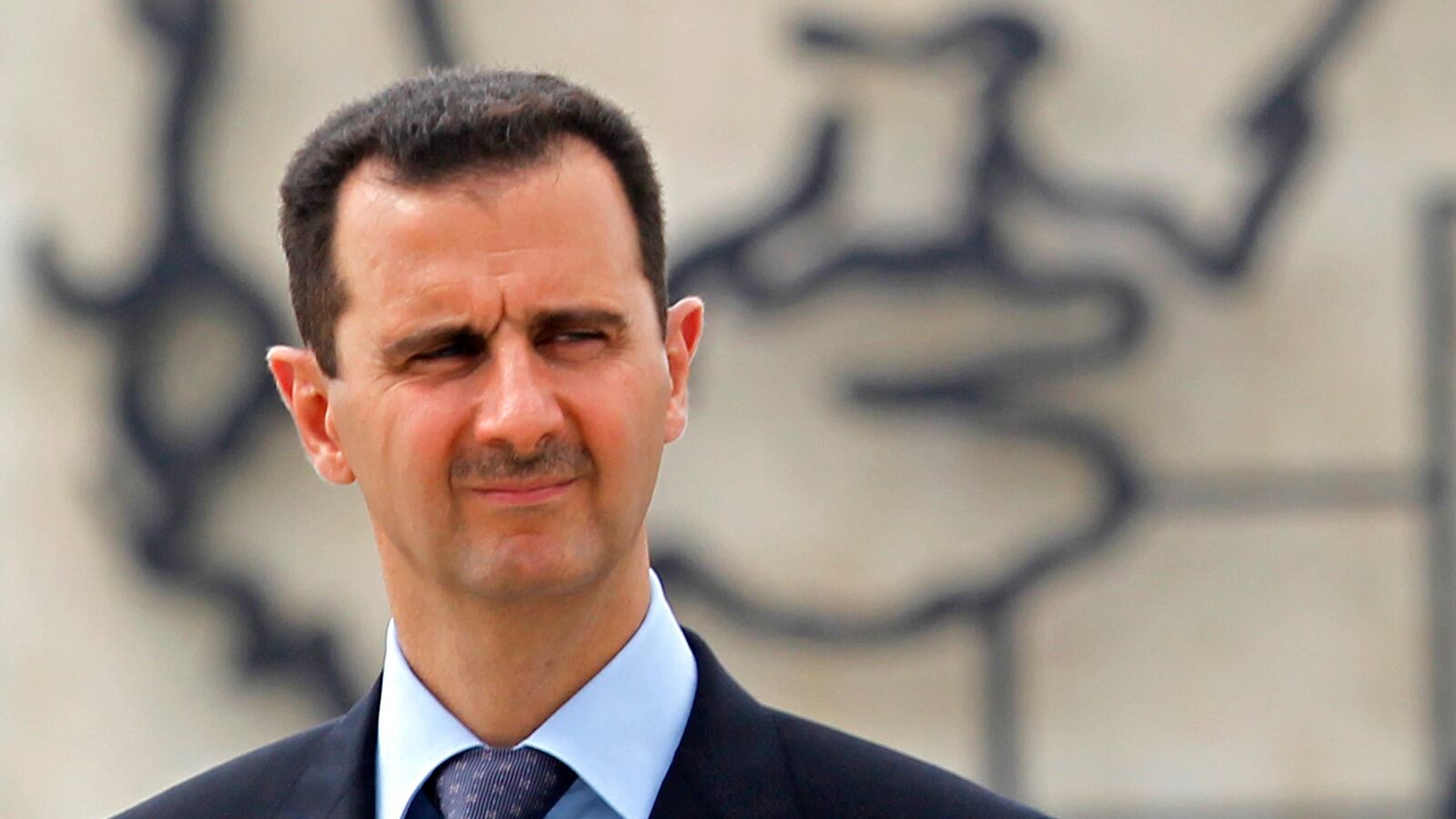GAZIANTEP, Turkey — The sacking of yet another Syrian intelligence chief has raised suspicions that President Bashar al-Assad’s inner circle is fraying under the pressure of recent battlefield losses to the rebels. Disputes over the outsize role Iran is playing to prop up the beleaguered Damascus regime are thought to be central to these internal disputes.
Ali Mamlouk, the head of the country's National Security Bureau, and considered a trusted security adviser to the Assad family since the 1970s, has been accused of plotting a coup and placed under house arrest, according to a report today in Britain’s Daily Telegraph. In the past few weeks, two other spy chiefs have been removed or killed.
In April, Rustum Ghazaleh, head of the Political Security Directorate, died in a hospital after he was beaten up on the orders of General Rafiq Shehadeh, his counterpart in military intelligence, who was in turn sacked. The two argued over the increasing power of Iranian advisers in Damascus.
The 69-year-old Mamlouk has been accused of holding talks with foreign powers and Syrian exiles, including Rifaat al-Assad, Bashar’s uncle, who fled Syria in the 1980s after trying to unseat Hafez al-Assad, and is now in France. Mamlouk’s loyalty in the past has never been questioned, despite that he is a Sunni Muslim and not a member of the Assad family’s minority Alawite sect, an offshoot of Shia Islam. He was one of the few Sunnis left among the high-ranking officers who hold top jobs in the intelligence agencies. In the 1970s, he helped set up the country’s Air Force Intelligence Directorate, arguably the most efficient and least corrupt of Syria’s various spy agencies.
In 2012, after rebels managed to bomb the national security headquarters in the Syrian capital, which left the then-Syrian defense minister and his deputy dead, Mamlouk was promoted to oversee the National Security Bureau, the spy arm of the ruling Baath Party, with unlimited access to President Assad. His alleged treachery is likely to send shock waves through the upper reaches of the regime.
Rebel commanders, who have been arguing that their recent battlefield successes with the capture of Idlib and a string of other towns in northern Syria are pushing the four-year-long civil war into a critical phase, see Mamlouk’s sacking as evidence that top Sunni Muslims backing the regime are now starting to peel away. They point out that Ghazaleh was also Sunni.
“This would be like Abdullah al-Senussi, Muammar Gaddafi’s spy chief, deserting his boss in the middle of Libya’s war,” says a rebel commander.
U.S. officials know Mamlouk well. He was in charge of negotiations with American officials to increase co-operation between Washington and Damascus on counterterrorism during the Iraq War, when Assad was providing a haven for jihadis for their attacks on U.S. forces. But in 2011, the U.S. sanctioned Mamlouk, saying he had been responsible for human-rights abuses in the crushing of anti-Assad protests by civilians. The U.S. government said he had been “involved in the Syrian regime’s actions in Deraa, where protesters were killed by Syrian security services.”
Mamlouk’s sacking also comes as tensions and disputes over tactics appear to be mounting between Assad’s army and the mainly Shia militia known as the National Defense Force, which is trained by the Iranians. Economic strains are mounting also on the Assad regime, which has negotiated a preliminary agreement for a second $1 billion credit line from Tehran.
Last week, during a commemoration ceremony in Damascus, Assad struck an uncharacteristically somber note, acknowledging the recent military defeats and urging Syrians to “boost the morale” of soldiers. One Israeli academic and commentator, Yaron Friedman, questioned, “Is the regime again on the verge of collapse like it was in 2012?”
Rebel commanders say that a collapse would be more likely if the U.S. imposed a no-fly zone in northern Syria—something the leader of the Western-backed political opposition alliance, the Syrian National Coalition, Khaled Khoja, urged Obama administration officials to do during talks last week in the U.S. But a senior State Department official told The Daily Beast that an American-imposed no-fly zone is “not on the cards.”
Syrian rebel commanders say a no-fly zone could set up the circumstances for a final showdown, arguing that when regimes collapse, they collapse quickly. But the sectarian underpinnings of the war suggest the Alawite minority has no choice but to hold out to the bitter end, and although the rebels are currently more united than they have been in the past two years, their track record of infighting suggests insurgent unity is fragile.
Assad’s allies, Iran and Hezbollah, Lebanon’s radical Shia movement, show no signs of wanting to throw in the towel. This month, Hezbollah leader Hassan Nasrallah linked the survival of his movement with Assad’s survival. “The regime possesses strong and committed allies,” writes analyst Jonathan Speyer, director of the Israeli think tank the Rubin Center.
On the outsize role of Iran and Hezbollah in the war, Speyer says: “Assad’s side is today a mixed bag of mainly Shiite volunteers assembled by Tehran, rather than the army of a coherent state regime. But this does not make its defeat more likely. Indeed, given the greater determination and cohesion the Iranians have shown throughout the region, when compared with the confused and flailing Sunnis and the largely absent West, the opposite might well be the case.”





